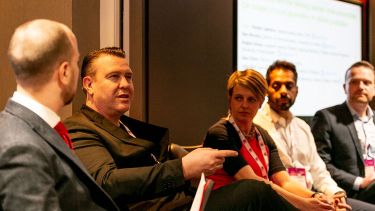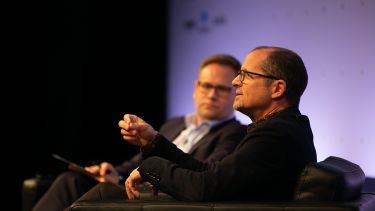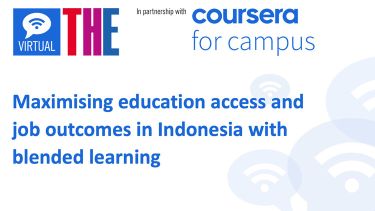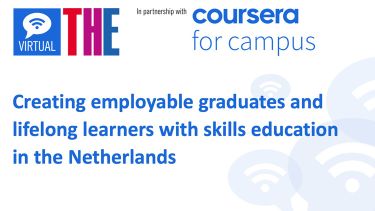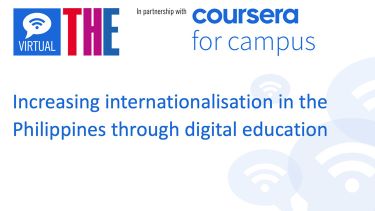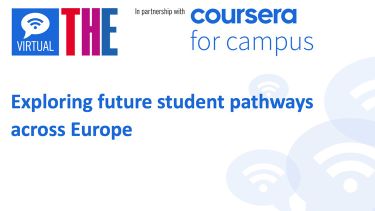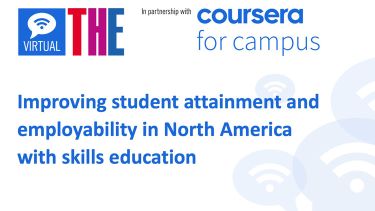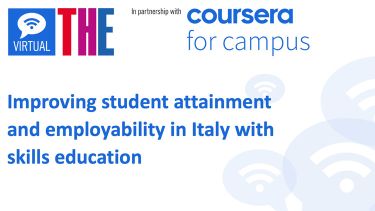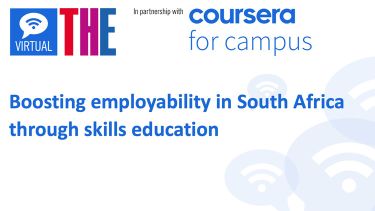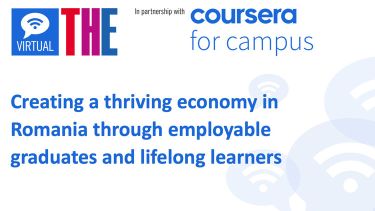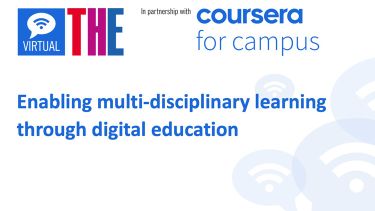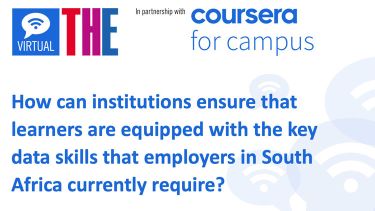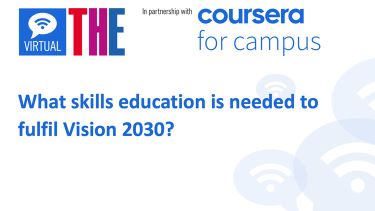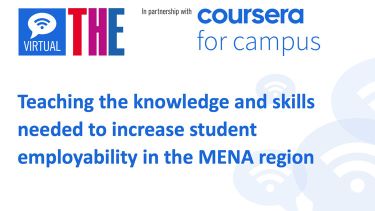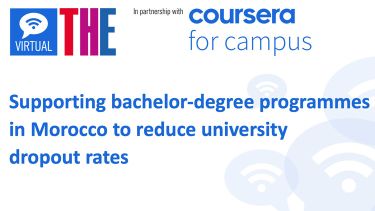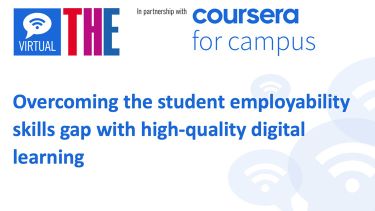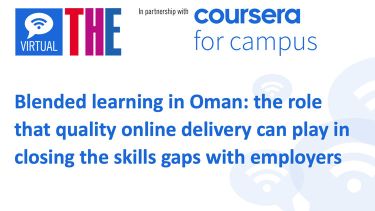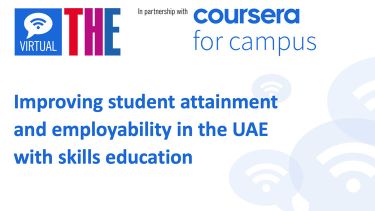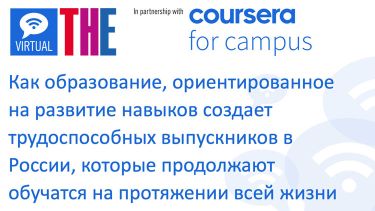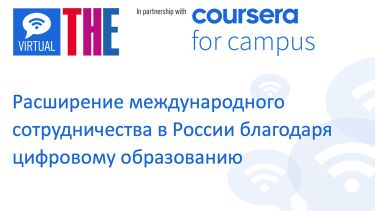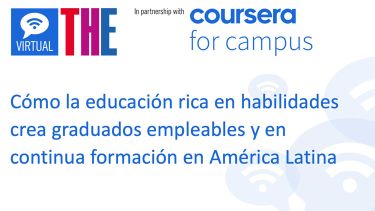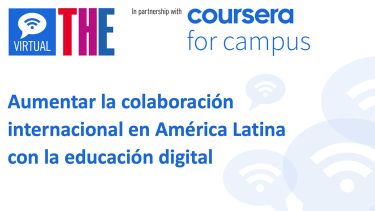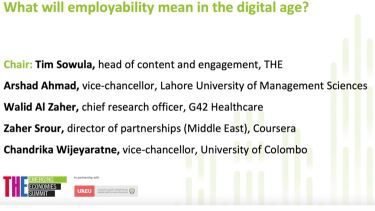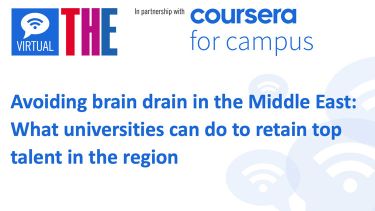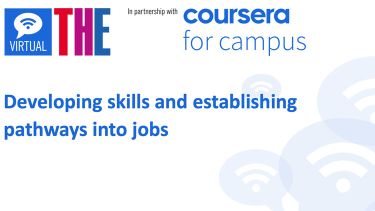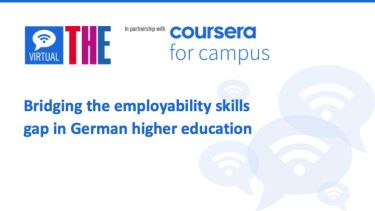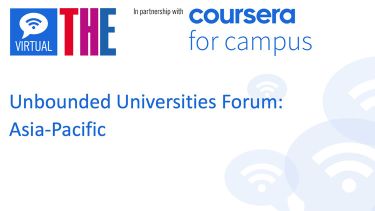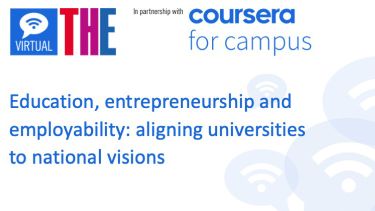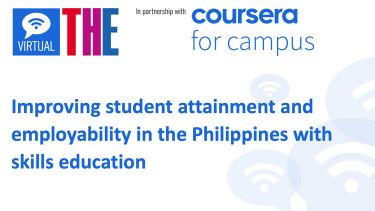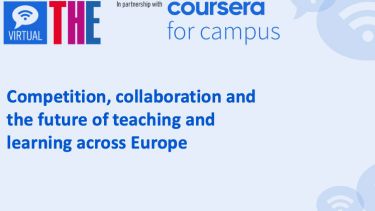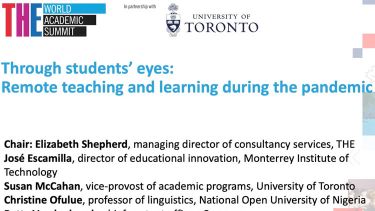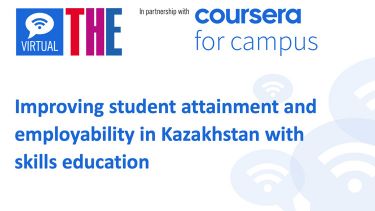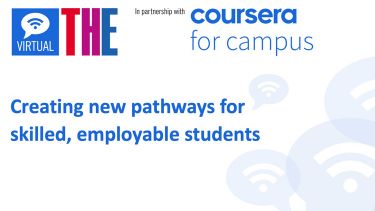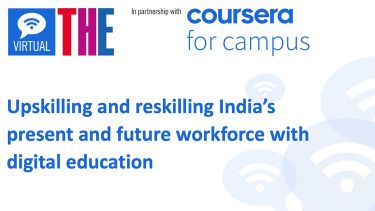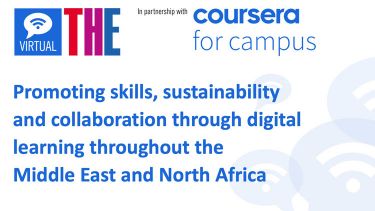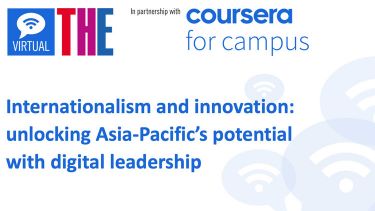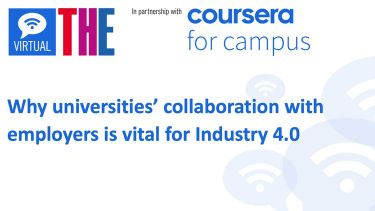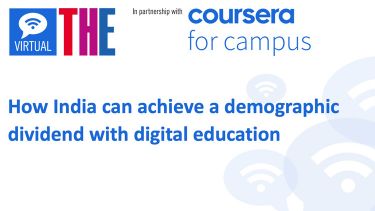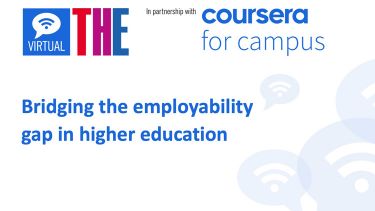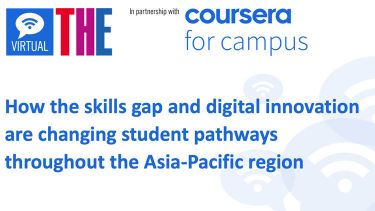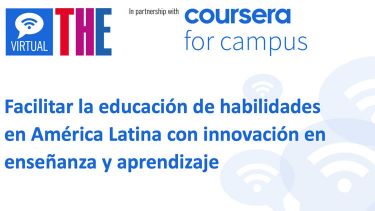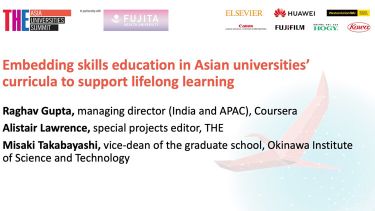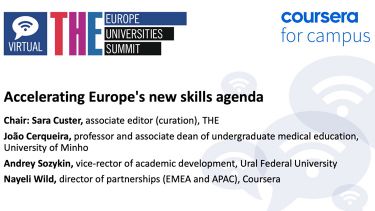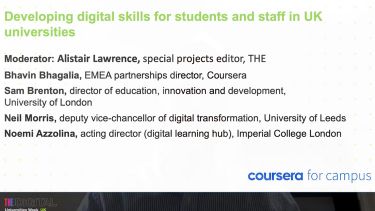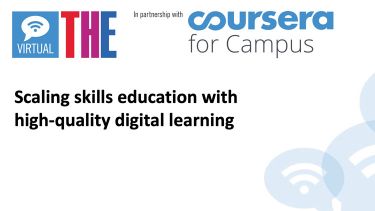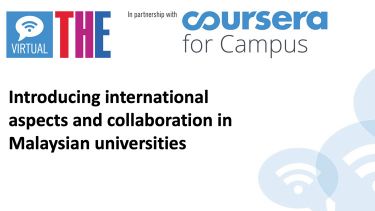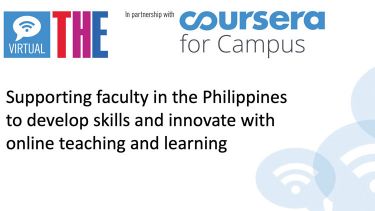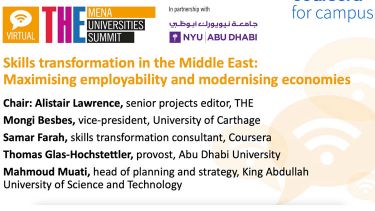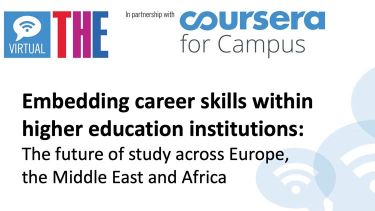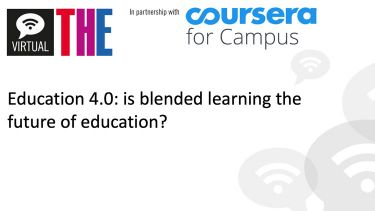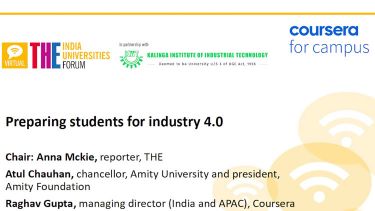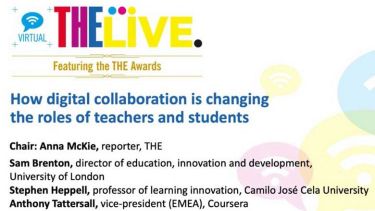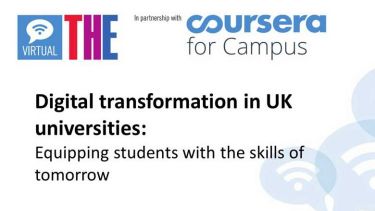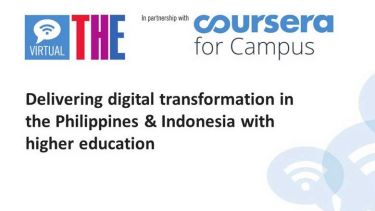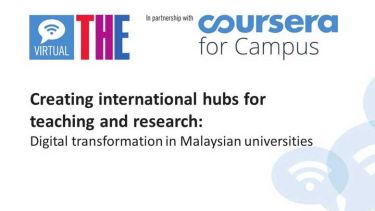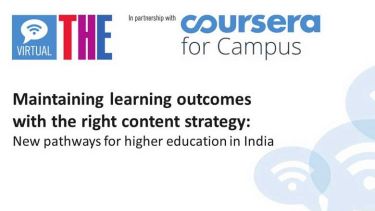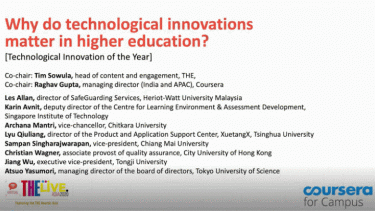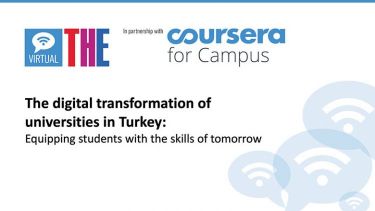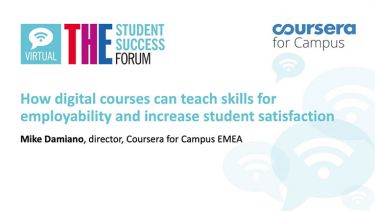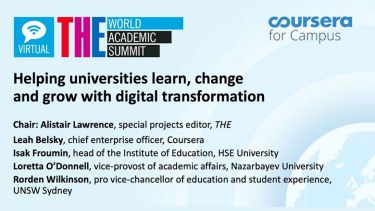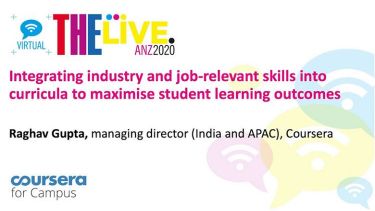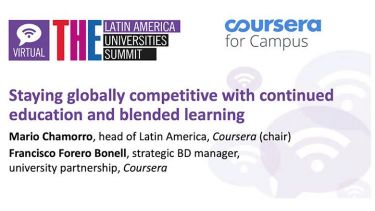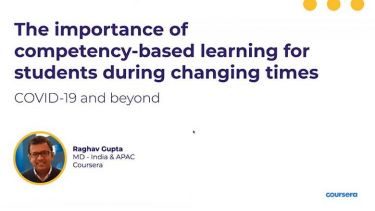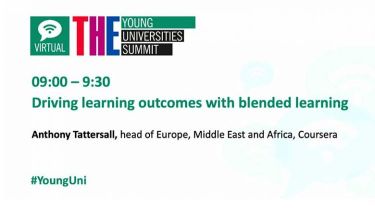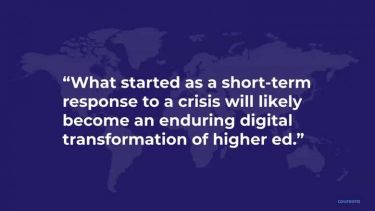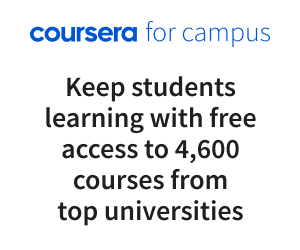As Indonesian higher education undergoes reform, sector leaders urge universities to embrace changes in course content and teaching and learning models
Indonesian universities must be willing to adapt curricula to make them more student-centred, offering learners the skills training demanded by employers.
A Times Higher Education round table, held in partnership with Coursera for Campus, examined how institutions could improve student attainment and employability in Indonesia with skills education.
Chair Ashton Wenborn, special projects deputy editor at THE, said that students, universities and employers had recognised the need to offer education to individuals at all stages of their life. She asked how institutions could successfully blend courses and curricula with online and in-person learning in a way that ensured student engagement.
Dian Ekowati, head of the planning and development board at Universitas Airlangga, said it was important to know the expected learning outcome of each student. “Then we can come up with the ideas on how the courses and curricula can be shaped to achieve that,” Ekowati said. “Our emphasis is on student-centred learning, where the students are actually the major players of the classroom setting.”
Abdul Haris, vice-rector of academic and student affairs at Universitas Indonesia, agreed that curricula should be designed with student needs and interests in mind. “We must recognise that each student is unique and has different preferences,” he said.
Since the Covid-19 pandemic, universities and graduates have faced a new reality for learning and employability, said Eklavya Bhave, sales lead at Coursera. He said that universities were prioritising employability, affordability, growing blended learning and supporting faculty development.
With Microsoft predicting that there will be 149 million new jobs that require digital skills by 2025, Bhave said Coursera was working with various institutions to offer career services and curriculum integration to prepare graduates.
Curtis Taylor, vice-president for student development at Universitas Pelita Harapan, said that the Indonesian government’s Kampus Merdeka, or Emancipated Learning, programme was giving students the flexibility to personalise their learning and gain industry experience.
“One of the outcomes of this programme is allowing us to be able to give students the opportunity to take classes from other faculties within the university, as well as do up to three semesters at another institution or having internships at a business that’s going to be useful in the curriculum,” Taylor said. “It’s making us look for ways to be more transformational in how we’re working.”
Taufiq Arifin, lecturer at Universitas Sebelas Maret, said a challenge of the programme was knowing how to translate experience outside the classroom into course credit.
“If they go to [work in] some industry, what kind of learning do they get? What kind of experience and competency do they get?” he asked.
Dadan Rahadian, vice-president for academic affairs at Telkom University, said that universities would have to change their “perspective and mindset” to ensure curricula were embedded with the skills needed to secure jobs.
“We are currently making the curriculum more flexible and agile,” Rahadian said. “We conduct curriculum evaluation in the short term, medium term and long term.”
Astha Ekadiyanto, director of the centre for independent learning at Universitas Indonesia, said that faculty had to engage closely with industry and, in some cases, “unlearn” their previous mindset.
“If we want to have a good and very robust curriculum that can actually answer the demands or requirements of industries then, of course, the people who are teaching this curriculum have to be well informed and well prepared,” he said.
The panel:
- Taufiq Arifin, lecturer, Universitas Sebelas Maret
- Eklavya Bhave, sales lead, Coursera
- Astha Ekadiyanto, director of the centre for independent learning, Universitas Indonesia
- Dian Ekowati, head of the planning and development board, Universitas Airlangga
- Abdul Haris, vice-rector of academic and student affairs, Universitas Indonesia
- Dadan Rahadian, vice-president for academic affairs, Telkom University
- Curtis Taylor, vice-president for student development, Universitas Pelita Harapan
- Ashton Wenborn, special projects deputy editor, Times Higher Education (chair)
Watch the round table on demand above or on the THE Connect YouTube channel.
Find out more about Coursera for Campus.



